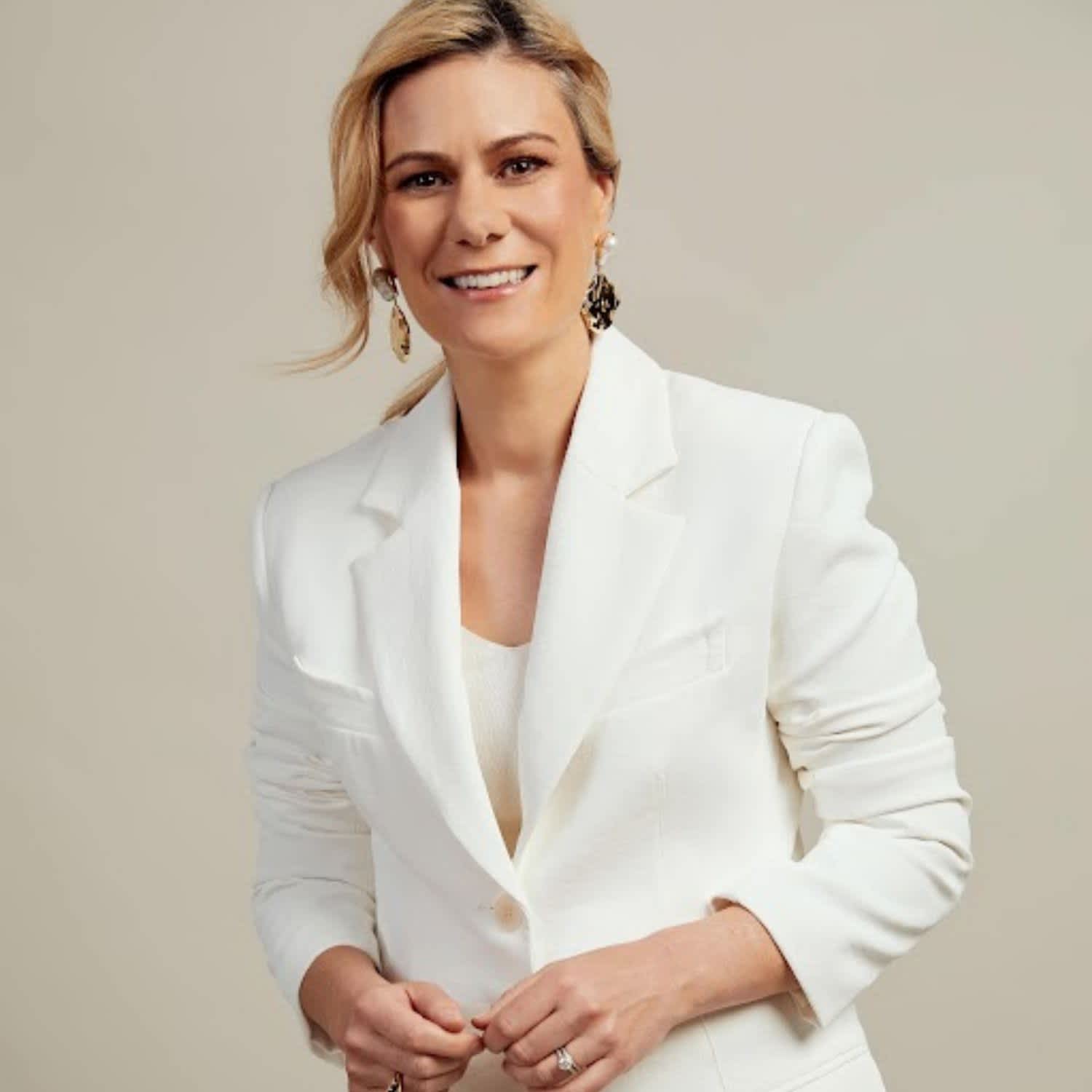International Women’s Day is Tuesday, March 8, and in light of that, we’re turning the spotlight to women doing incredible things. And while there are countless around the country, proving their place in the leadership world, here, we’ve highlighted three of them.
Ahead, Erica Berchtold, CEO at THE ICONIC, Kathleen McCudden, Chief Human Resource Officer at SEEK, and Ros Tregurtha, Chief People and Sustainability Officer at Domain, share their stories on how they got where they are now, and what their best advice is to women (and men, too, of course) also looking to climb the corporate ladder.
Erica Berchtold, CEO at THE ICONIC

I’ve been lucky enough to work in the retail industry for over 20 years, starting my career in sales and moving up into various senior management positions, before stepping into the role of CEO at THE ICONIC in 2019.
My love for the industry was ignited during my early years working for Harvey Norman — I absolutely loved the entrepreneurial spirit of that business, and I still consider Gerry Harvey and Katie Page mentors today. The best thing about it was that they never pigeonholed me — I was able to touch lots of parts of the business as a result.
When the CEO role at THE ICONIC came up, I was five months pregnant. I was pretty upfront about that and when they were still keen to offer me the role, I knew I was joining a business that was special. THE ICONIC is unlike any other business I’ve worked for because of this steadfast focus on people — customers, partners and our employees. I was also extremely proud to be walking into a business that fiercely supported women.
My advice to emerging female leaders is twofold:
Find a mentor. I really believe mentorship is key to empowering women to make change within the workplace. Continuing to talk about the challenges women face at work is how we address them. I’ve worked closely with an organisation called Mentor Walks for a number of years and have just signed up to do some events with them, so keep an eye out for those.
When you find yourself in a leadership position, be the change you want to see. Advocate for policies that support women (e.g. hybrid & flexible working), invest in training and create pathways for women to progress within the business. Put yourself out there and become a mentor — for men and women. Leave the industry better than you found it.
Kathleen McCudden, Chief Human Resource Officer at SEEK

Right now, it’s a time of great opportunity for women and their careers. We are experiencing the Great Jobs Boom, with demand for talent at record highs and people having more negotiating power than ever before.
At the same time, as we emerge from the pandemic, it’s also true that women have been disproportionately impacted compared to men. The lion’s share of caring responsibilities, including homeschooling and childcare; placed additional strain on women and for some, it has taken a significant toll. Women may not be feeling energised about putting their careers first, as they feel burnt out after a very demanding two years.
Recently SEEK undertook external research, looking at women’s expectations related to work in a post lockdown world compared to their male colleagues. This confirmed that women are prioritising flexibility above all else, including the ability to work remotely. Over half of women surveyed want their employers to help better differentiate work and home life, by reviewing workloads and reconsidering workplace demands.
While the desire for flexibility is not a new phenomenon, the pandemic has increased the expectation for employers to provide structured frameworks and clearer guidelines to support flexible work practices within teams. This is now a critical selection criterion for female workers, with 63% of them expecting documented flexible work policies and 53% wanting set boundaries between work and personal hours; and for this to be embedded in the culture as normal business etiquette.
With the abundance of job opportunities, perhaps most surprising was the finding that women are less likely to be looking to change jobs or careers compared to men. Changing roles typically involves learning and extra effort, and the research indicates women are less inclined to embark on this right now.
Despite this, now is the ideal time for women to prioritise themselves and their careers. The first step is to clarify what’s important for you in a role, and in your career, and develop a plan towards achieving this. Once you can articulate what you want, the next step is to take action.
This may involve applying for a new role, having a career conversation with your manager, or asking for greater flexibility in your current role. Employers will have a greater willingness to negotiate in the current candidate short market to retain and attract the best people, so don’t be afraid to ask for what you want. Keep in mind that if your current employer can’t satisfy your career needs, there are plenty of other opportunities and have the courage to explore them. With talented people in such short supply, this is great news for women — so embrace this moment.
Ros Tregurtha, Chief People and Sustainability Officer at Domain

Holding Domain’s Chief People and Sustainability Officer title is not something I strategised growing up. After high school, I attended Newcastle University to study radiography. After failing a few subjects, I realised it was not the career for me.
At the age of 20, this became a pivotal moment in my life as I dropped out of university and returned home to my parents. I learnt my first lesson — it’s OK to fail and turn to a new challenge even if you’re clueless at the time. These experiences helped me build resilience, the ability to empathise and along the way, I realised I didn’t want to work in healthcare but instead work in a career where I can help people grow and develop.
I had a hunger to succeed and in my second attempt at university, I graduated with first-class honours and began my career in Human Resources. Another defining moment in my career was when I became HR Manager at a male-dominated print site, and in my first management meeting, I called out the men in the room on the language they were using. I live by standing up for what you believe is right.
My honours thesis was on Affirmative Action Legislation, and it showed what was lacking for females to support their careers. This is where businesses can lean in, for example, last year, Domain extended its parental leave to 20 weeks and the ability to take that leave for secondary carers over a 24-month period. This is very much about encouraging the dads in our business to support their partners. They can maintain their ability to have an impact at work via interesting work while, at the same time, turning the reality of being a dad into something meaningful which is just as important. As a leader, I believe in supporting and uplifting all men and women without any bias.
The best career advice I received was to always say ‘yes’ when you are offered an opportunity and if you wish to be a leader then don’t doubt yourself, lean in and challenge yourself to be that person. Having diverse leadership, including female representation at all levels of an organisation drives better business outcomes and it has shown to drive growth and innovation. Diversity of thought is what all businesses should aim for.
Read more stories from The Latch and subscribe to our email newsletter.







